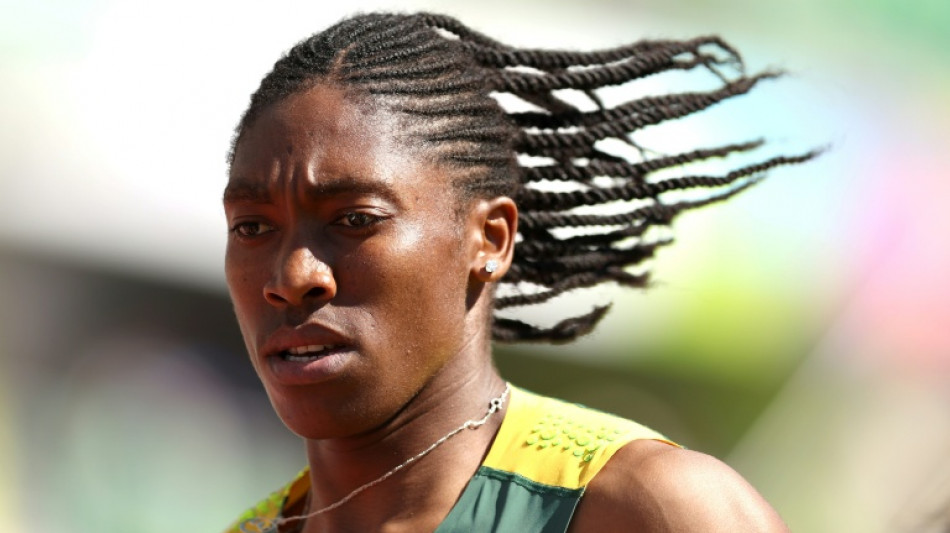
-
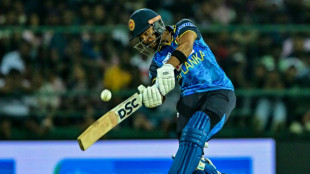 Sri Lanka steamroll Bangladesh to win first T20
Sri Lanka steamroll Bangladesh to win first T20
-
Swiatek routs Bencic to reach first Wimbledon final
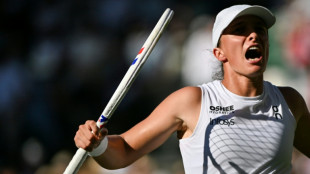
-
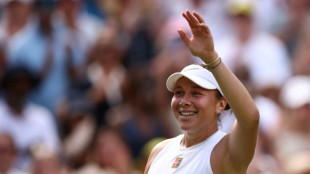 Anisimova shocks Sabalenka to reach Wimbledon final, Swiatek in action
Anisimova shocks Sabalenka to reach Wimbledon final, Swiatek in action
-
Europe court says S.African Semenya's gender eligibility trial wasn't fair
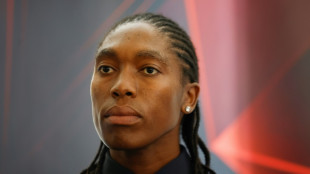
-
 Ten rescued after deadly Huthi ship sinking off Yemen
Ten rescued after deadly Huthi ship sinking off Yemen
-
Scrutiny over Texas flood response mounts as death toll hits 120

-
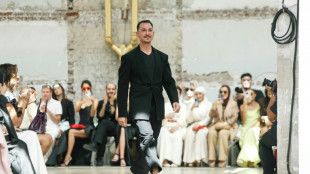 Rami Al Ali becomes first Syrian in Paris fashion programme
Rami Al Ali becomes first Syrian in Paris fashion programme
-
London stocks hit record high on tariff optimism

-
 Ireland's Healy pulls off solo win at Tour de France
Ireland's Healy pulls off solo win at Tour de France
-
French appeals court clears two over first lady gender rumours

-
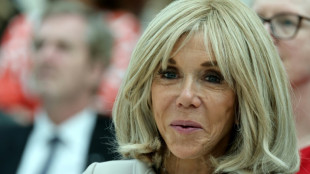 French appeals court court clears two over first lady gender rumours
French appeals court court clears two over first lady gender rumours
-
Barry Callebaut cuts outlook as chocolate sales volumes melt away

-
 The $10 mn bag: Original Birkin smashes records at Paris auction
The $10 mn bag: Original Birkin smashes records at Paris auction
-
Anisimova stuns Sabalenka to reach Wimbledon final
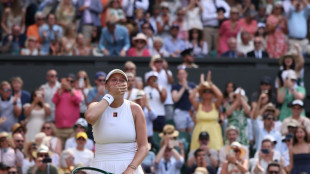
-
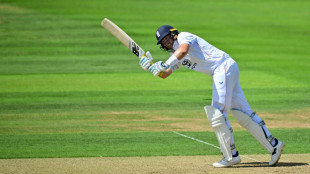 Root leads England revival after Reddy's double strike for India
Root leads England revival after Reddy's double strike for India
-
Snap, crackle and pay: Ferrero to buy WK Kellogg for $3.1 bn

-
 Shein faces 150-mn-euro fine in France
Shein faces 150-mn-euro fine in France
-
Rubio says Asia might get 'better' tariffs than others

-
 India wicketkeeper Pant leaves field injured in third Test
India wicketkeeper Pant leaves field injured in third Test
-
Russia says holds 'frank exchange' with US on Ukraine war

-
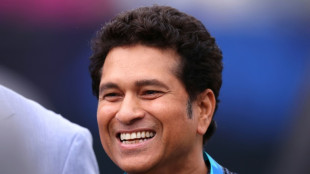 Tendulkar says 'life has come full circle' with Lord's portrait
Tendulkar says 'life has come full circle' with Lord's portrait
-
Wall Street stocks stall, London hits record high

-
 Duplantis unfazed by late world champs in Tokyo
Duplantis unfazed by late world champs in Tokyo
-
Europe court says S.African athlete's gender eligibility trial wasn't fair
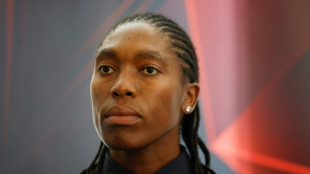
-
 Dzeko, 39, returns to Serie A with Fiorentina
Dzeko, 39, returns to Serie A with Fiorentina
-
Scrutiny over Texas flood response mounts as death toll tops 120

-
 Iran threats in UK 'significantly increased': Intel watchdog
Iran threats in UK 'significantly increased': Intel watchdog
-
Volkswagen halts electric minivan exports to the United States

-
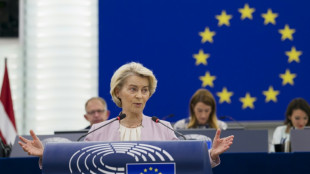 EU chief von der Leyen comfortably survives confidence vote
EU chief von der Leyen comfortably survives confidence vote
-
India's Reddy strikes twice to rock England

-
 EU opens new probe into TikTok data transfer to China
EU opens new probe into TikTok data transfer to China
-
Italy probes UK online bank Revolut for 'misleading' clients

-
 Arsenal sign midfielder Norgaard from Brentford
Arsenal sign midfielder Norgaard from Brentford
-
Explosions, fires rock Kyiv in deadly Russian barrage

-
 Fatigued Afghan taxi drivers take novel approach to AC
Fatigued Afghan taxi drivers take novel approach to AC
-
Rubio meets Russia's Lavrov at ASEAN talks

-
 Stocks rise on tariff optimism, London hits record high
Stocks rise on tariff optimism, London hits record high
-
Hamas says Israeli troops sticking point in truce talks as Gaza pounded

-
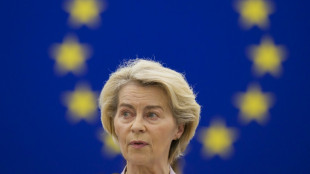 EU chief von der Leyen survives confidence vote by large margin
EU chief von der Leyen survives confidence vote by large margin
-
Europe court says S.African athlete's trial wasn't fair in gender testing case
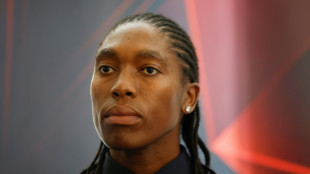
-
 Ten rescued, more missing after deadly Huthi ship sinking
Ten rescued, more missing after deadly Huthi ship sinking
-
EU unveils recommendations to rein in powerful AI models

-
 England bat against India in third Test as Bumrah returns
England bat against India in third Test as Bumrah returns
-
Caster Semenya: A rebel with a cause
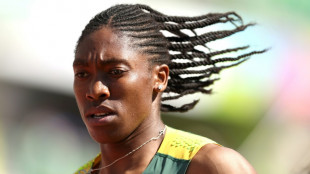
-
 AI-powered tour brings Anne Frank's story to life in Amsterdam
AI-powered tour brings Anne Frank's story to life in Amsterdam
-
Wave of Russian drones, missiles kills two in Kyiv

-
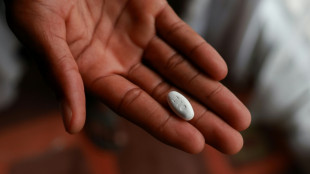 US funding cuts could reverse decades of gains in AIDS fight: UN
US funding cuts could reverse decades of gains in AIDS fight: UN
-
England star Henderson leaves Dutch giants Ajax

-
 Hippo birthday: Thai internet sensation Moo Deng turns one
Hippo birthday: Thai internet sensation Moo Deng turns one
-
Farrell on the bench for Lions against Australia-New Zealand


Caster Semenya: A rebel with a cause
When 19-year-old unknown South African Caster Semenya pulled off a stunning 800 metres final triumph at the 2009 world championships in Berlin, she could never have imagined the drama that would follow.
She had barely touched the tape to claim gold when controversy erupted over whether she should have been allowed to compete. Some rivals questioned whether she was a woman.
Officials reacted by forcing Semenya to have a sex test, and it was not until the following year that the woman born in a northern village could run again.
Recalling the sex test to a London audience, Semenya said "being told you are not woman enough can be disturbing".
Now 34, Semenya was born with differences of sexual development (DSD) and some opponents believed her biological make-up gave her an unfair advantage.
Later, when Semenya refused to take drugs to supress testosterone, a hormone that increases muscle mass, strength and endurance-enhancing haemoglobin, she was banned by World Athletics.
She collected 800 metre gold medals at the 2012 and 2016 Olympic Games in London and Rio de Janeiro -- the first after Russian winner Mariya Savinova was belatedly disqualified over doping.
Semenya also struck gold over her favourite distance at world championships in Berlin, South Korean city Daegu and London.
But instead of basking in the glory of becoming a middle-distance track queen, she became embroiled in a string of legal battles just to compete.
Previously, when Semenya took testosterone-reducing medication, the athlete told South African media she suffered "hell".
"When you are desperate (to run), you will do anything to get what you want. The medication was not designed for my body because I am different.
"I am a woman who is different, I do not have a uterus, I do not have fallopian tubes. I was never happy (taking the medication), it irritated me, I was not myself."
As the years passed, relentless Semenya exchanged her 'golden girl' status among South Africans and became a rebel with a cause.
Her frustration heightened when an initial World Athletics ban covering middle-distance races extended to all track events.
- 'Gross violation' -
She labelled the move a "gross violation of human rights. What is at stake here is far more than the right to participate in a sport.
"Women's bodies, their wellbeing, their ability to earn a livelihood, their very identity, their sense of safety and belonging in the world are being questioned."
But while Semenya railed against World Athletics, the organisation refused to budge, and Semenya missed the 2024 Paris Olympics.
"DSD regulations are a necessary, reasonable and proportionate means of protecting fair competition in the female category," said the international body.
Taking the legal route to try and overturn the ban, Semenya lost cases at the Court of Arbitration for Sport (CAS) and the Swiss Federal Tribunal (SFT).
The European Court of Human Rights (ECHR) took a different view, though, by a 4-3 majority. They said the Semenya appeal had not been properly heard.
"The applicant had not been afforded sufficient institutional and procedural safeguards in Switzerland to allow her to have her complaints examined effectively," the ECHR said.
SFT, supported by World Athletics, appealed the decision, leading to a two-year wait before the 17-judge ECHR Grand Chamber gave its ruling and found again in her favour.
"We need to respect athletes, we need to put their rights first... It's just a reminder to the leaders to say priorities lie in the protection of athletes," she said after the appeal ruling.
While several South African athletes approached by AFP over the issue did not wish to comment, the government and the public have backed Semenya in her crusade against "injustice".
"Our entire history of South Africa has been a struggle for human rights. These (World Athletics) rules have had a negative effect on our golden girl," said then sports minister Tokozile Xasa.
As Semenya suffered setbacks, she could rely on the support of her parents, three sisters and one brother. "The relationship I have with my family is special," she said.
Q.Jaber--SF-PST
